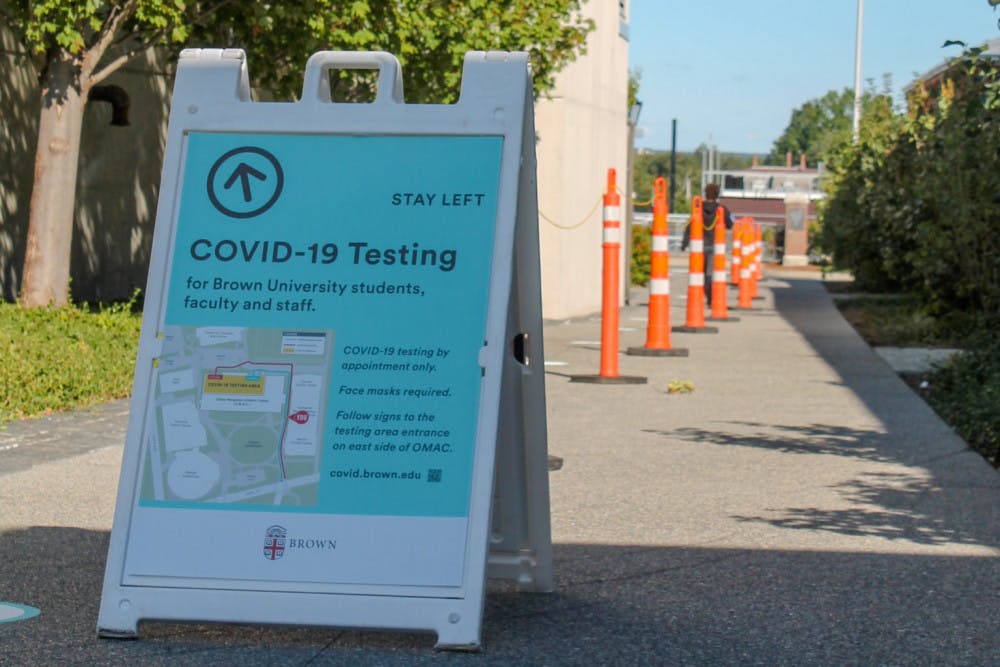The University has further lifted restrictions on density requirements on campus and on international travel and will make additional changes in housing capacity and campus visitor policy by the fall semester, as the number of community members testing positive for COVID-19 each week remains at a minimum.
There have been zero positive COVID-19 cases among University students and faculty between July 9 and July 16, according to the Healthy Brown COVID-19 Dashboard. The University removed vaccinated members of the community from the testing program July 13, The Herald previously reported. During the same time period, there were also no positive cases reported from high school students in the Pre-College program, including the new cohort of students who moved in last weekend, said Executive Vice President for Planning and Policy Russell Carey ’91 MA’06.
Starting Monday, July 19, the University will no longer require seat reservations for the Rockefeller Library, Sciences Library and Willis Reading area in the John Hay Library, according to the LibCal website.
The University also plans to decrease the amount of space dedicated for quarantine and isolation housing for the fall semester.
There will be “a modest number of rooms reserved” for quarantine and isolation housing “out of caution,” but not entire dorm buildings as in past semesters, Carey said. The locations of these rooms have not yet been finalized.
The remaining rooms no longer needed for quarantine or isolation will be repurposed as regular fall housing, as the University is going to be at “full capacity with roommates and suitemates,” Carey said.
This change will be a “rapid turnaround” between the summer and fall semesters, as the fall semester has a “moving start date” that depends on when students return to campus, which could be as soon as the middle of August. For example, a Residential Peer Leader will move in earlier in August for training compared to a first-year student arriving for Orientation in September.
During the week of July 8 to July 14, the total population of employees that documented their proof of vaccination with the University exceeded 90 percent, and that of the total student population increased to 83.9 percent from 77.8 percent.
“We wanted to have time before the fall semester to really work through requests for exemptions, or issues with (vaccine) access,” Carey said. “We expect to be at 90 percent and above; that's our goal and our expectation, and I don't really see any reason that won't happen.”
The University plans to remove restrictions on visitors to campus Aug. 15, according to Carey.
Currently, “people have to have special permission to have visitors to campus, so that's a significant change — probably more impactful for departments and research facilities,” who may invite outside speakers or collaborators for their work, he said.
The University also lifted many pandemic-related restrictions on University-sponsored international travel, The Herald previously reported.
“For much of the pandemic, there's been no allowed international travel at all (without) specific approvals and exemptions,” Carey said. Now “people don't need to get permission for University-sponsored travel.”
Many study abroad programs will resume in the fall, according to University Spokesperson Brian Clark. “There was an individualized assessment that happened on every single program,” with guidance from the Centers for Disease Control and Prevention and the state department at each program location, as various circumstances, such as the “capacity of the host institution to contend with the challenges of COVID-19,” differ in each place, Clark said.
Carey added that students and faculty participating in international travel “might be subject to restrictions in terms of getting back into the United States” since different airlines have various regulations and testing requirements.
But the University itself “wouldn't have any particular requirements” for those returning from international travel beyond what is already required for those on-campus. For instance, if an unvaccinated person returns from travel, “they'll have to participate in testing, wear masks and practice social distancing until they're fully vaccinated,” per general guidance, Carey said.
Gabriella was a Science & Research editor at The Herald.





